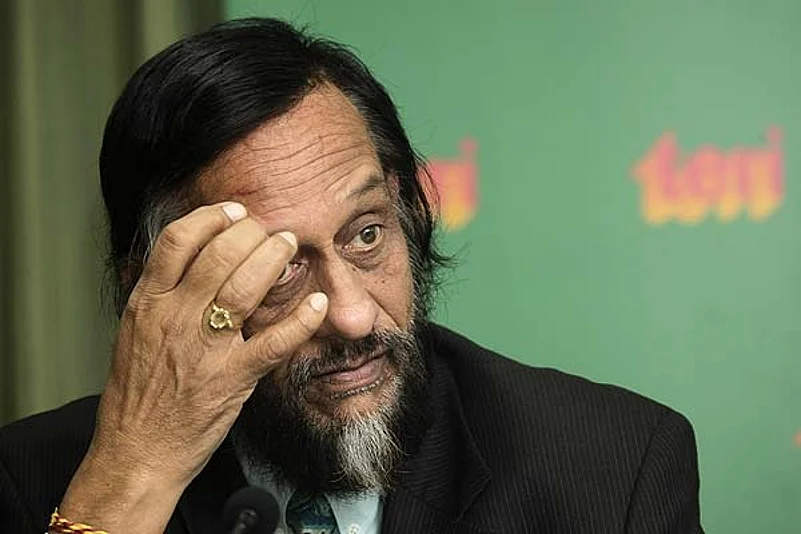A Delhi court has refused to restrain the media from reporting the alleged sexual harassment case against R K Pachauri, former Director General of The Energy and Resources Institute (TERI), but asked the press to play a balanced role and shun sensationalism.
The court acknowledged the right of the public to know the developments in the case and asserted that any gag order would "trample" that right.
It said the earlier 'interim orders' asking the media to report the high-profile case in a particular manner, as "uncalled for" and hence, stood "vacated".
"The injunction, as sought for, falls foul to the said explicit proposition of the law. Such restraints as sought for, not only amount to enforcing a gag order upon the media but at the same time prevents the right of the public to be kept updated about the developments – their right to know is infracted or trampled upon," Additional District Judge Sumit Dass, said.
The court also said that all reportage on the matter should carry Pachauri's or his representative's views as well.
"In the event if such views or comments are not given by them, then a statement as to the fact that an effort was made to ascertain their views should also be made in the news, articles or programmes, as the case may be," it said.
The court also directed the media houses to mention in their reports that "the matter is still sub-judice or is still pending in the court or a final decision in the case is still awaited".
The court noted that while reporting sexual harassment matters, the media has to play a very balanced role, as such reports have wide repercussions, affect dignity and infract into the privacy of individuals besides having a bearing on the functioning and reputations of the institutions involved.
"It won't be any misnomer or palpably wrong to say that it has the potential to make or mar a person's reputation and career. Thus, with such a wide encompassing power, a corresponding duty also lies upon the media to report such a matter in a neutral, impartial and objective manner.
"However, there is no gain saying that an endeavour is always made by media to somehow or the other to catch the eyeballs or the attention of the viewers/readers. In the said race, many a times, the stories which are presented, contain exaggeration, sweeping statements are made, element of sensationalisation is inserted - a sort of jingoistic or aggressive narrative or undertone is adopted, same is done to create a hype or a buzz or even a sort of a hysteria around the news and sometimes even a sort of crusader approach is adopted while reporting of the news," it said.
The court said it was not merely that the media can make fair comment only in respect of public persons holding public office.
"The plaintiff himself had stated that he is a recipient of various awards/well- decorated and also claims himself to be a leading luminary in his field having national and international stature. Thus, he has a public persona or is a public figure and has to be under public gaze," it said.
After registration of an FIR against him by a colleague in 2015, and with more women raising allegations in the months that followed, a civil suit was filed by Pachauri against some media houses in 2016.
Pachauri had filed the plea for injunction alleging defamation and sought damages amounting to Rs one crore against some media houses, one of the women who had complained against him and her lawyer.
PTI






















